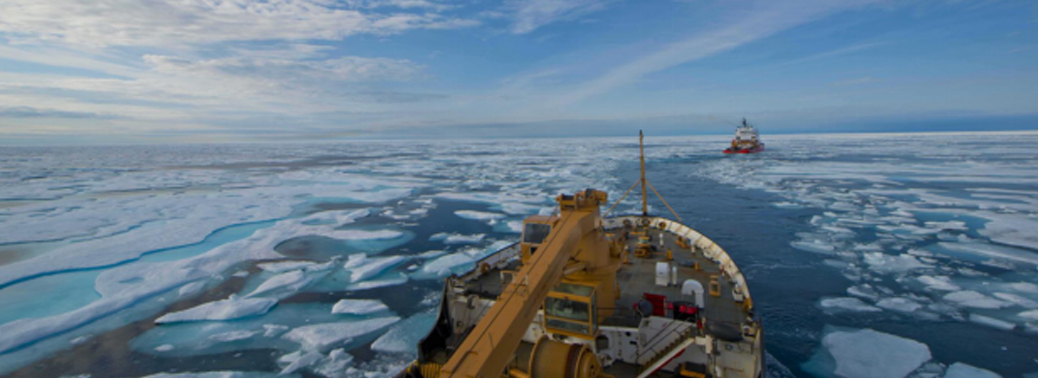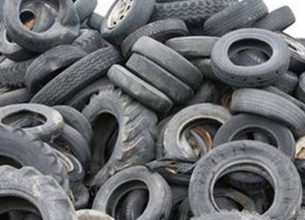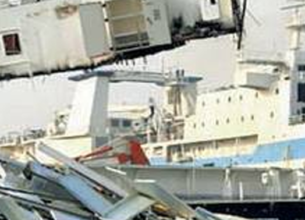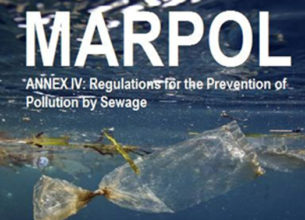NEW SHIPPING LAWS FOR ARCTIC REGION
03, Feb 2020

Prelims level : International Polices & Schemes.
Mains level : GS-II Important International Institutions, Agencies and fora- their structure, Mandate.
Why in News?
- Environmental activists have called for a ban on the use of new low sulphur marine fuel in the Arctic region. They have cited new research which shows that blends of very low-sulfur fuel oil (VLSFO) contribute to highly polluting black carbon emissions in the Environment.
Highlights:
- Recently, International Maritime Organization (IMO), the shipping agency of the United Nations, issued new rules aiming to reduce sulphur emissions, due to which ships are opting for newer blends of fuels.
- The IMO has banned ships from using fuels with a sulphur content above 0.5 per cent, compared with 3.5 per cent previously. Sulphur oxides (SOx), which are formed after combustion in engines, are known to cause respiratory symptoms and lung disease, while also leading to acid rain.
- The new regulations, called IMO 2020, have been regarded as the biggest shake up for the oil and shipping industries in decades. It affects more than 50,000 merchant ships worldwide.
- The new limits are monitored and enforced by national authorities of countries that are members of the International Convention for the Prevention of Pollution from Ships (MARPOL) Annex VI.
- Only ships fitted with sulphur-cleaning devices, known as scrubbers, are allowed to continue burning high-sulphur fuel. Alternatively, they can opt for cleaner fuels, such as marine gasoil (MGO) and very low-sulfur fuel oil (VLSFO). Many are reportedly choosing VLSFO, which has better calorific properties and other technical advantages. There are complaints against VLSFO as well, as testing companies have claimed that high sediment formation due to the fuel’s use could damage vessel engines and also release Black Carbon.
- Black carbon, which is produced due to the incomplete combustion of carbon-based fuels, contributes to climate change. Increase in black carbon emissions would accelerate the melting of Arctic sea ice and impact the earth’s climate.
International Maritime Organisation (IMO):
- IMO is a specialised agency of the United Nations responsible for Regulating Shipping.
- The IMO was established following agreement at a UN conference held in Geneva in 1948 and the IMO came into existence ten years later.
- Headquartered in London, United Kingdom, the IMO currently has 174 member states and three associate members.
- The IMO’s primary purpose is to develop and maintain a comprehensive regulatory framework for shipping and its remit today includes safety, environmental concerns, legal matters, technical co-operation, maritime security and the efficiency of shipping.
- IMO is governed by an assembly of members and is financially administered by a council of members elected from the assembly.
MARPOL 73/78 (Marine Pollution 1973- 1978):
- MARPOL is one of the most important international marine environmental conventions.
- It was developed by the International Maritime Organization with an in an objective to minimize pollution of the oceans and seas, including dumping, oil and air pollution.
- All ships flagged under countries that are signatories to MARPOL are subject to its requirements, regardless of where they sail and member nations are responsible for vessels registered on their National Ship Registry.
Annex VI:
- It introduces requirements to regulate the air pollution being emitted by ships, including the emission of ozone-depleting substances, Nitrogen Oxides (NOx), Sulphur Oxides (SOx), Volatile Organic Compounds (VOCs) and shipboard incineration.
- It also establishes requirements for reception facilities for wastes from exhaust gas cleaning systems, incinerators, fuel oil quality, for off-shore platforms and drilling rigs and for the establishment of SOx Emission Control Areas.










